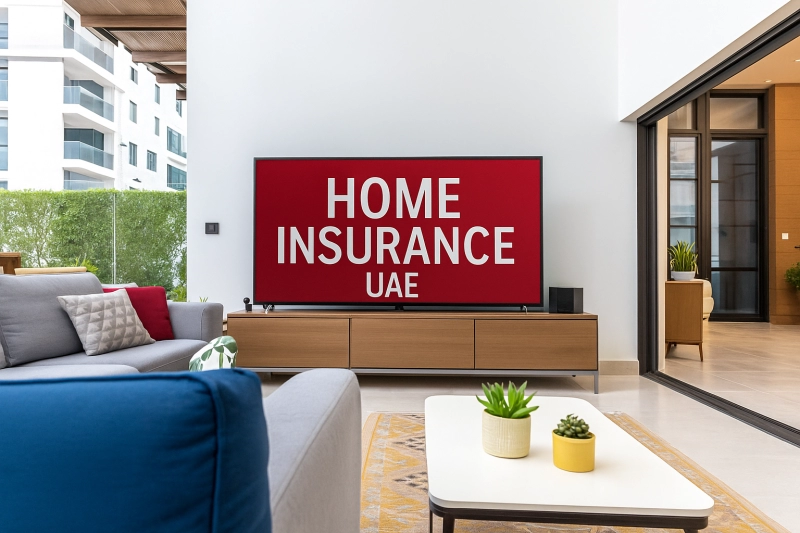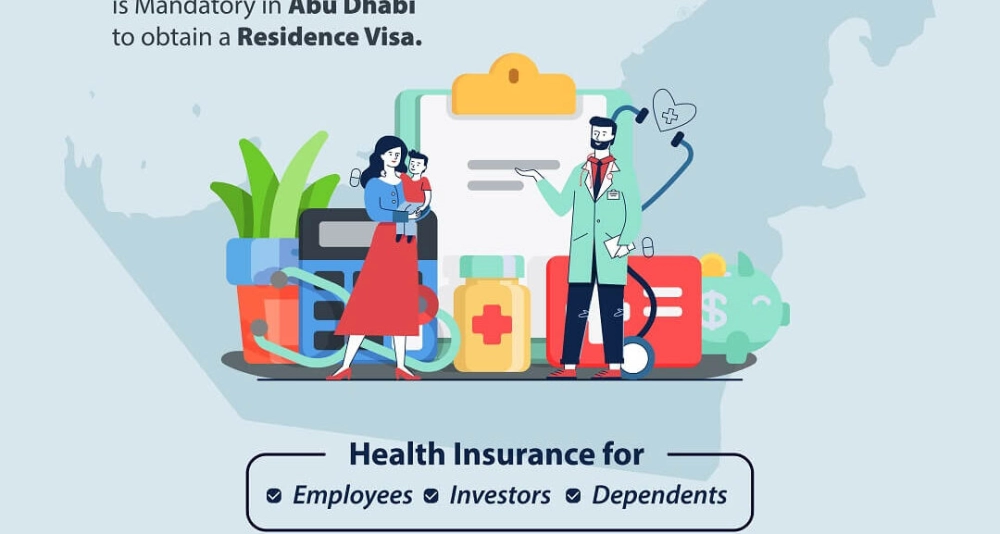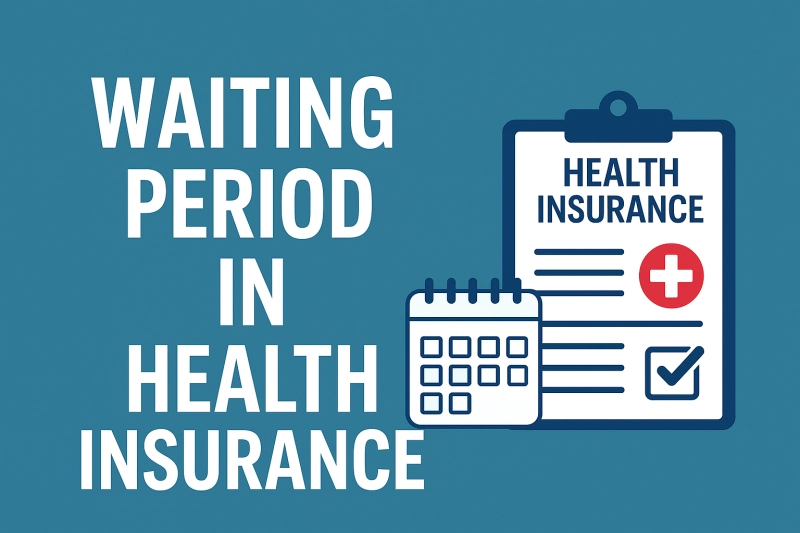Understanding Home Insurance UAE Like a Local Expert
Imagine your home in the UAE. Now, picture a protective bubble around it, shielding it from the intense desert sun, the surprise sandstorms, and even the occasional downpour. That's what home insurance in the UAE is all about – a specialized safeguard designed for this unique environment. It's not just a formality; it's about protecting your investment and your peace of mind. For a deep dive into the topic, check out our comprehensive guide on home insurance in the UAE.
Why Location Matters in UAE Home Insurance
When it comes to home insurance premiums in the UAE, location plays a big role. Think about it: a beachfront apartment in Dubai Marina faces different risks than a villa tucked away in Arabian Ranches. Coastal properties are more exposed to potential water damage, while inland homes might be more vulnerable to sandstorms. These location-specific risks directly influence how your premiums are calculated.
Understanding Risk Sharing: The Foundation of Insurance
At its core, home insurance is all about risk-sharing. Imagine a neighborhood potluck, where everyone contributes a small dish to share. If one family forgets their dish, everyone else chips in to make sure they still have something to eat. That's similar to how insurance works – everyone contributes a small amount (the premium) to a larger pool, and if someone experiences a loss (like home damage), the pool covers the costs. This spreads the financial burden, making it manageable for everyone.
How UAE Insurers Adapt to Local Realities
UAE insurers take global insurance principles and tailor them to the specific needs of the region. This means they offer coverage for things like sandstorm damage, which might not be a standard offering in other parts of the world. They also cater to the diverse population of the UAE, designing policies for everyone from first-time homeowners to seasoned investors. This localized approach ensures that home insurance UAE policies are relevant and practical for residents. Did you know that non-life insurance, including home insurance, is a significant part of the UAE insurance market? By 2025, it's projected to reach $5.81 billion out of a total market volume of $9.64 billion. Learn more interesting facts here.
From Global Concepts to Local Solutions
The UAE's status as a regional hub attracts international insurers, creating a competitive market that fosters innovation. This is good news for consumers, offering more choices and potentially lower premiums. This competition also encourages insurers to offer more comprehensive coverage, addressing the unique challenges homeowners in the UAE face. Understanding these local nuances is essential for choosing the right policy for your specific needs. And speaking of challenges, after a crisis, navigating insurance claims can be complex. Commercial Claims provides helpful resources for handling specific types of incidents.
Why the UAE Insurance Market Actually Works in Your Favor
The UAE's recent experience with unexpected flooding actually reveals something interesting about its insurance market: it's stronger than you might think. Instead of collapsing under the pressure of billions of dirhams in claims, the industry bounced back. This resilience is a big reason why getting home insurance in the UAE is a smart move, especially now. These past challenges have pushed insurers to adapt, compete, and handle claims more efficiently when disaster strikes. Curious about the bigger picture? You can explore the dynamics of the UAE insurance market.
How Challenges Led to Improvements
The UAE's status as a regional business center attracts top international insurance companies. This creates a vibrant market where new ideas and better services emerge, ultimately benefiting consumers. Think of it like a bustling marketplace – more vendors mean more choices and better prices. This influx of international expertise has raised the bar, leading to better risk assessment and faster claim processing. Plus, recent weather events have prompted a rethink of what's covered. Insurers are now offering stronger flood protection and speedier claim payouts, addressing the changing needs of homeowners. Speaking of protecting your home, basic security is key. Check out these helpful home security tips.
Regulatory Improvements and Consumer Benefits
Changes in regulations are also making things better for consumers in the UAE insurance market. These updates ensure greater transparency and hold insurers accountable, safeguarding policyholders’ interests. For example, standardized policy wording makes it easier for homeowners to understand what they're actually covered for, avoiding confusing jargon and hidden loopholes. Imagine trying to decipher a contract written in a language you barely understand – not fun! Standardized policies prevent this. The increased competition among insurers also means lower premiums and a wider variety of coverage options. This puts the power back in the hands of consumers, letting them choose policies that truly fit their needs and budgets.
Market Resilience in Action
The UAE insurance market has proven its resilience. In 2024, despite substantial insured losses from flooding – estimated between US$2.9 billion and US$3.4 billion – the industry saw a 21% jump in revenue. This impressive performance highlights the sector’s financial strength. Want to delve deeper? Find more information here. This resilience means the system is robust and dependable, giving homeowners confidence that their claims will be paid even when major events happen. All these factors create a good environment for getting home insurance in the UAE, offering homeowners valuable protection and peace of mind.
Decoding Your Coverage Options: What Protection Really Means
The infographic above gives you a quick overview of what a typical home insurance policy covers. Think of it as a visual guide, highlighting the key areas protected. Notice the document and shield icons – a subtle reminder of the security a good policy provides.
Think of your UAE home insurance like a multi-layered security system for your property and finances. Each layer addresses a different type of risk. Let's explore the core components: Buildings Coverage, Contents Coverage, and Liability Coverage.
Buildings Coverage: Protecting Your Structure
This covers the physical structure of your home: walls, roof, and foundation. Imagine a powerful sandstorm damages your roof. Buildings coverage would help pay for the repairs. Whether you own a villa in Abu Dhabi or an apartment in Dubai, this coverage protects your investment.
This is essential for homeowners. It’s like having a financial safety net for the structure of your property.
Contents Coverage: Safeguarding Your Belongings
This covers your personal belongings inside your home – furniture, electronics, jewelry, and more. Imagine a burst pipe damages your furniture. Contents coverage helps replace these items.
Whether you're renting an apartment in Sharjah or a penthouse in Dubai Marina, your belongings are protected. Even if you don’t own the property, you own the things inside, and this coverage looks after them. For a deeper dive into home insurance options, you can explore more options available in the UAE.
Liability Coverage: Your Legal Shield
This protects you against legal issues. Imagine someone gets injured on your property. Liability coverage could cover their medical expenses and protect you from potential lawsuits.
In a busy place like the UAE, this coverage offers valuable peace of mind. It's about having a safety net in case of unexpected accidents.
To help you understand the various types of coverage available, let's take a look at the table below. It breaks down each coverage type, what it protects, typical limits, and whether it's essential for UAE residents.
| Coverage Type | What It Protects | Typical Coverage Limit | Essential for UAE |
| Buildings Coverage | Physical structure of your home (walls, roof, foundation) | Varies based on property value | Yes, especially for homeowners |
| Contents Coverage | Personal belongings inside your home (furniture, electronics, jewelry) | Varies based on value of possessions | Yes, for both renters and homeowners |
| Liability Coverage | Legal and medical expenses related to accidents on your property | Varies based on policy | Highly recommended |
As you can see, each coverage type plays a crucial role in protecting your home and finances. Understanding the details of each will help you choose the right policy.
Essential Add-ons for UAE Residents
Beyond the basics, consider these add-ons:
- Coverage for Domestic Workers: Given their prevalence in UAE households, this protection is highly relevant.
- Home Office Protection: With the rise of remote work, insuring your home office equipment and liability is increasingly important.
- Garden Restoration Coverage: Sandstorms are a common occurrence in the UAE, and this add-on can help restore your garden after damage.
The Middle East and Africa property insurance market, including UAE home insurance, is expected to grow. Forecasts predict a 7.2% CAGR from 2025 to 2033. Fire and theft, key risks covered by these policies, are major drivers of this growth. You can find more information here. These add-ons offer a proactive approach to managing risks specific to the UAE. Choosing the right combination ensures your home insurance policy truly protects you.
Navigating UAE Insurance Laws Like a Seasoned Resident
UAE insurance regulations are there to protect you. Think of them as a safety net, designed to catch you if things go wrong. While home insurance isn't always mandatory in the UAE, certain situations do require it—and it’s generally a good idea even if it isn't. Let's explore these situations, focusing on mortgages, community rules, and landlord responsibilities. This isn't about complicated legalese; it's about understanding how the system works to your advantage.
Mortgages and Mandatory Coverage
Most banks in the UAE require comprehensive home insurance if you have a mortgage. It's like a two-way street: it protects both you and the bank. This coverage usually safeguards the building's structure, making sure the bank's investment (and your home!) is secure if disaster strikes. The required coverage usually matches your outstanding loan amount. So, if you have a mortgage of AED 1 million, the bank will likely want you to have at least that much coverage.
Community Rules and Apartment Insurance
If you own an apartment, your community might have its own rules about insurance. These rules often cover shared areas and potential liability issues. Imagine a scenario where a fire in your apartment damages your neighbor’s unit. Your personal insurance, along with the community's policy, would step in to cover the costs. It’s like having double protection, providing extra peace of mind. Learn more about the value of home insurance policies in our dedicated Dubai guide.
Landlord Responsibilities and Tenant Protection
Landlords in the UAE also have specific insurance responsibilities. While they don't usually have to insure tenants' belongings, insuring the building itself is essential. This not only protects the landlord’s investment but also creates a safer living environment for tenants. Think of it as building a solid foundation of protection.
Understanding Your Rights and Protections
UAE regulations offer some key protections for homeowners. For instance, there are mandatory cooling-off periods, giving you time to review your policy and change your mind if needed. There are also standardized terms, which help make sure insurance policies are clear and easy to understand, preventing insurers from hiding complicated details in confusing language. These regulations are designed to keep things transparent and fair.
Maintaining Compliance and Staying Informed
Staying compliant with regulations is straightforward. Keep your policy documents organized and easy to find. Also, keep an eye on any regulatory changes by checking the Central Bank of the UAE website or chatting with your insurance provider. These simple steps will ensure your coverage stays active and you remain in line with the rules.
This isn't about navigating a complex legal maze. It's about understanding how UAE regulations benefit both homeowners and renters. By understanding these key aspects, you can make smart choices to protect your property and your finances.
Cracking the Code: What Actually Determines Your Premium
Ever wonder how your home insurance premium is calculated? It's not a random number pulled out of a hat. Instead, insurers in the UAE use a detailed process to assess risk, much like a doctor evaluating your health. Several factors come into play, some obvious, some less so. Let's break them down, starting with the fundamentals. For a more in-depth look at what a home insurance policy covers, check out our guide on components of home insurance in the UAE.
The Foundation: Property Value and Location
The value of your home is a key factor. Imagine insuring a rare sports car versus a standard sedan. The sports car, being more valuable, would require a higher coverage amount and therefore, a higher premium. Similarly, a luxurious villa in Emirates Hills will command a higher premium than a smaller apartment in Sharjah, simply due to the difference in value and the cost of rebuilding.
Location also plays a crucial role. Picture a beautiful beachfront apartment in JBR. While desirable, it faces a higher risk of water damage compared to a villa nestled in the Arabian Ranches. This increased risk translates directly into a higher premium. Likewise, properties in areas prone to flash floods or sandstorms will see higher rates. Location, location, location - it’s all about assessing the probability of a claim.
Surprising Factors: Your Profile and Community
Beyond the physical property, your personal profile matters. Factors like your profession, credit history, and even your past claims history influence your premium. This might seem surprising, but these elements contribute to a system of shared risk. Statistically, responsible homeowners with good credit tend to file fewer claims. This allows insurers to offer them lower premiums, making the system more equitable for everyone.
Believe it or not, your neighborhood also makes a difference. Areas with higher crime rates or a history of frequent claims can result in higher premiums for everyone in that area. Think of it like car insurance: drivers in areas with high accident rates pay more. It's a matter of shared risk within a community.
Practical Strategies for Lowering Your Premium
While some factors are out of your hands, others offer opportunities to save:
- Smart Bundling: Bundling your home and car insurance with the same provider often results in discounts. It’s a bit like buying in bulk at the grocery store - you get a better price.
- Strategic Deductibles: Opting for a higher deductible – the amount you pay out-of-pocket before your insurance coverage kicks in – can lower your premium. Just make sure you can comfortably afford that deductible if you need to make a claim.
- Home Improvements: Investing in security systems, fire alarms, and a sturdy roof can lower your risk and earn you discounts. These improvements demonstrate to insurers that you're proactive about protecting your property.
Before we move on, let's take a look at how some of these factors can impact your premium in the UAE. The following table summarizes key premium factors and their potential impact, along with potential savings strategies and the level of control you have over them.
UAE Home Insurance Premium Factors and Impact
| Factor | Impact Level | Potential Savings | Homeowner Control |
| Property Value | High | N/A | Limited |
| Location | High | N/A | Limited |
| Construction Materials | Medium | Choose fire-resistant materials | Medium |
| Security Features | Medium | Install alarms, security systems | High |
| Deductible | Medium | Increase deductible (within comfort level) | High |
| Claims History | Medium | Maintain a clean claims record | High |
| Bundling | Low | Bundle home and car insurance | High |
| Credit Score | Low | Maintain good credit | High |
As you can see, while some factors like location and property value are fixed, you have a good deal of control over others. By focusing on the factors you can control, you can make informed decisions to manage your home insurance costs.
Recognizing Value Beyond Price
Remember, a higher premium isn't always a bad thing. It can sometimes mean you're getting more comprehensive coverage or choosing a financially stronger insurer. It's like buying a high-quality appliance: it might cost more initially, but it offers better performance and lasts longer. When comparing home insurance policies, don't focus solely on the price tag. Consider the overall value and the level of protection offered.
Your Smart Buying Strategy: From Research to Purchase
Buying home insurance in the UAE doesn't have to feel like navigating a maze. Think of it like choosing the right lock for your front door – you wouldn't pick the same lock for a studio apartment as you would for a sprawling villa. Your home insurance should be just as personalized, reflecting your individual needs and the specific risks your property faces. Let's break down the process step by step, from initial research to securing your policy.
Assessing Your Needs: A Personalized Approach
Before you even start looking at policies, take a moment to consider your actual needs. What kind of risks does your property face? Is it a beachfront apartment susceptible to weather damage, or a villa in a gated community? Think about the location, the building materials, and even the value of your belongings.
Imagine walking through your home and making a mental note of everything you own. This helps you visualize the "contents coverage" you'll need. Do you have valuable jewelry or electronics? A detailed inventory will ensure you're adequately covered if anything unfortunate happens. This is where understanding the different types of coverage becomes important. Remember the Buildings Coverage, Contents Coverage, and Liability Coverage we talked about earlier? This is where they come into play. And don’t forget about those optional add-ons like flood insurance – a must-have if you live in an area prone to flooding.
Comparing Quotes: Beyond the Price Tag
Once you have a good grasp of your needs, it's time to start gathering quotes. But don't fall into the trap of simply choosing the cheapest option. Think of it like buying a new phone. You wouldn't choose solely based on price, would you? You'd consider features, reliability, and brand reputation.
Insurance is the same. Look beyond the price tag and delve into the details. What does each policy actually cover? What's the insurer's reputation for handling claims? Are they financially stable? A slightly higher premium might be worth it for better coverage and a smoother claims experience. Online resources and customer reviews can offer valuable insights into an insurer's reliability.
Reading the Fine Print: Understanding Your Policy
Before you sign on the dotted line, take the time to thoroughly read the policy document. Yes, it might seem like a daunting task, but it's crucial. Imagine signing a lease without reading it – you wouldn't do that, would you?
Pay close attention to what's not covered (the exclusions) as well as what is. Understanding these details will prevent unwelcome surprises later on. And if anything is unclear, don't hesitate to ask your insurer or a broker for clarification. They’re there to help you understand your policy inside and out.
Choosing Your Purchasing Channel: Direct vs. Broker
When it comes to actually buying your insurance, you have two main options: going directly to an insurer or using a broker. Each has its own perks. Buying direct might offer slightly lower prices, while a broker provides personalized advice and can help you compare multiple quotes.
Think of a broker like a travel agent – they do the legwork for you, finding the best deals and guiding you through the options. If you prefer a more hands-on approach and are comfortable doing your own research, buying direct might be a better fit. Platforms like InsuranceHub.ae offer a convenient way to compare quotes from different insurers all in one place.
Streamlining the Application Process: Tips for Success
Just like packing for a trip, gathering all the necessary documents beforehand will make the application process much smoother. Have your proof of ownership or tenancy agreement, property details, and a list of valuables ready to go. Being organized saves you time and hassle.
And remember, honesty is the best policy (pun intended!). Providing accurate information is essential. Inaccurate information can lead to complications or even invalidate your policy. The insurer will assess your risk profile during the underwriting process, which might include property inspections or background checks.
What to Expect During Underwriting and Approval
After you submit your application, the insurer will begin the underwriting process. This is where they assess your risk and determine your premium. Think of it like applying for a credit card – the bank assesses your creditworthiness before approving your application. Once underwriting is complete, you'll receive your policy document. Give it a final thorough review to make sure everything aligns with your expectations.
And that's it! You're officially covered. Your home insurance policy is your financial safety net, giving you peace of mind knowing you're protected against the unexpected.
When Crisis Strikes: The Real Claims Experience
Filing a home insurance claim is when your policy truly matters. It's the moment that piece of paper becomes your lifeline. Understanding the process beforehand can make a stressful situation much easier. Let's walk through a typical claims journey in the UAE, using real-life examples.
Immediate Steps After an Incident
Picture this: You're in your Dubai apartment when a pipe suddenly bursts, sending water cascading into your living room. Your first priority? Everyone's safety. Get everyone out of harm's way. Then, contact your insurer immediately. Especially with water damage, every minute counts. Document everything – take photos and videos of the damage. Think of it like gathering evidence at a scene. This documentation will be essential for a smooth claim. Before you even get to this point, though, checking out different buying guides can really help you choose the right policy from the start.
Documenting Damage for Maximum Compensation
Think of your documentation as building a strong case for your compensation. Imagine a theft in your Abu Dhabi villa. Don't just tell your insurer what's missing; show them. A police report, photos of the missing items, and purchase receipts are all vital pieces of the puzzle. The more evidence you provide, the stronger your claim becomes.
The Role of Loss Adjusters
After you file a claim, the insurer will likely send a loss adjuster. Think of them as detectives. They'll visit your property, assess the damage, verify your documentation, and determine how much the insurer is responsible for. Their assessment forms the basis of your settlement. Cooperating fully with the loss adjuster and providing all requested information will help expedite the process.
Calculating Settlement Amounts and Handling Disputes
Settlement amounts are calculated based on several factors: the loss adjuster’s report, your policy terms, and the actual cost of repairs or replacement. But sometimes, disagreements happen. Let's say your insurer undervalues the damage caused by a fire in your Sharjah home. You have the right to challenge their assessment. Keep a record of all communication and supporting documents, just in case. UAE regulations provide policyholder protections, including access to dispute resolution mechanisms.
Understanding Your Rights and Resolutions
You have rights as a policyholder. UAE insurance laws offer consumer protections, guaranteeing a fair and timely claims process. If you feel your insurer isn't treating you fairly, you can escalate the matter to the UAE Insurance Authority. Knowing your rights empowers you to navigate the claims process confidently.
Proactive Claim Prevention and Insurer Relationships
The best claim is the one you never have to make. Regular home maintenance, installing smoke detectors, and securing your property are like preventive health checkups for your home. They can significantly reduce risks. Maintaining a good relationship with your insurer – by staying in touch and promptly reporting any changes to your property – can also make things easier if you ever do need to file a claim.
This isn't just about understanding the claims process; it's about being prepared for those stressful moments when you need your insurance most. It's about making sure your policy is more than just a document – it's a tool that protects you and your home.
Ready to secure your peace of mind? Compare home insurance quotes and find the perfect policy for your needs with InsuranceHub.ae. Visit InsuranceHub.ae today for a quick, easy, and transparent insurance buying experience.







